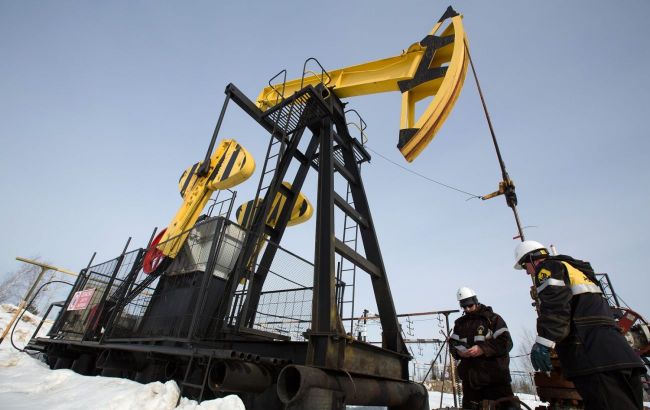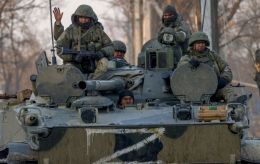Price cap on Russian oil could shift: How system works
 Photo: The price ceiling for Russian oil will change (Getty Images)
Photo: The price ceiling for Russian oil will change (Getty Images)
The price ceiling on Russian oil approved by the EU will be reviewed every three months. It can either increase or decrease depending on world oil prices.
According to RBC-Ukraine, this follows from the terms of the 18th EU sanctions package.
For the next three months, the ceiling will be $47.6 per barrel. This is slightly lower than previously expected.
In the initial draft of the sanctions package, the ceiling price was proposed to be reduced from $60 to $45 per barrel. But in the final version, the measure was softened, stipulating that the ceiling would be set based on the average oil price over the past 3 months, minus 15%.
Thus, if oil prices rise in the fall, the price ceiling will rise. If they fall, the price ceiling will decrease accordingly.
There is a possibility of a price ceiling increase in the fall, and this is a serious threat, Razom We Stand, an organization that analyzes the process of stopping funding for Russia's military potential, told RBC-Ukraine.
"The new dynamic mechanism for setting the price ceiling, although technically more complicated, creates a risk of political unfreezing of restrictions. If world oil prices rise, Brussels may allow the ceiling to increase so as not to provoke a deficit. And this will play into the hands of the Kremlin, as it will mean the actual legalization of inflated revenues that Russia already receives by violating the current ceiling," RWS believes.
How price ceiling works
The price ceiling on Russian oil sets the maximum price at which countries can buy it from Russia. Transportation and insurance companies will not be able to provide their services for transactions where the price of oil is higher than the ceiling.
In order to maintain oil exports, Russia can either lower the price of oil or use the so-called shadow fleet. These can be old tankers that are not subject to strict control, tankers registered in countries with more lenient rules for transportation, such as Panama or Liberia. For oil transportation, Russia uses the tanker fleets of Greece, Malta, and Cyprus.
But access to the shadow fleet will become more difficult for Russia. Sanctions of the 18th package have been expanded to include dozens of vessels that provide such services and several companies that manage them.
"Russia is already forced to maneuver between discounts and shadow schemes, and both options are becoming more expensive. If the sanctions pressure increases, it will either expand the shadow fleet, which is expensive and risky due to sanctions on vessels and captains, or reduce the price," RWS believes.
However, if secondary sanctions and monitoring of ways to circumvent the existing ones are strengthened, the decline in revenues for Russia will be much more significant, the company said.
As RBC-Ukraine previously reported, EU member states have agreed to introduce a new sanctions package against Russia. It includes a lower price ceiling for Russian oil and a number of new financial and trade measures.
Oil prices rose by less than 1% after the EU agreed to lower the ceiling price for Russian crude oil. The price of Brent exceeded $70 per barrel, while West Texas Intermediate exceeded $68.

